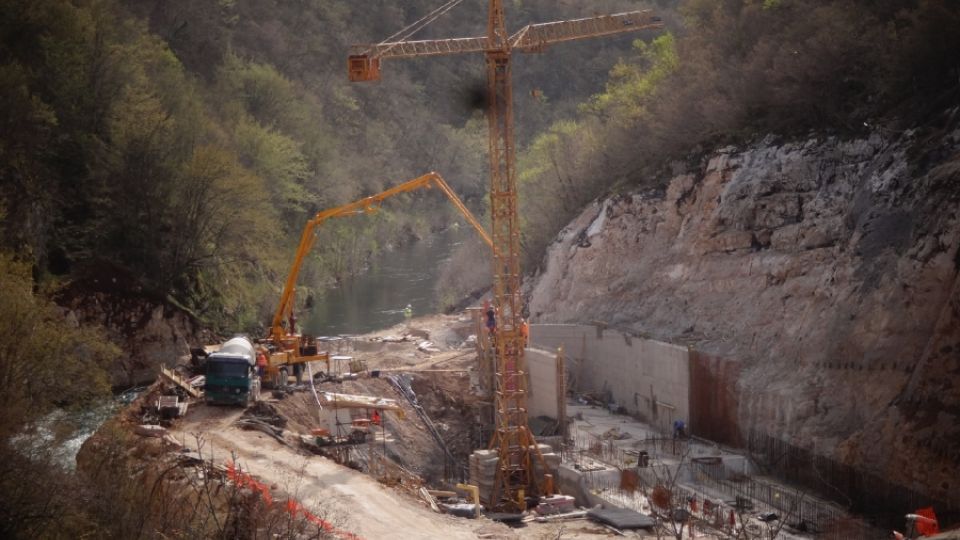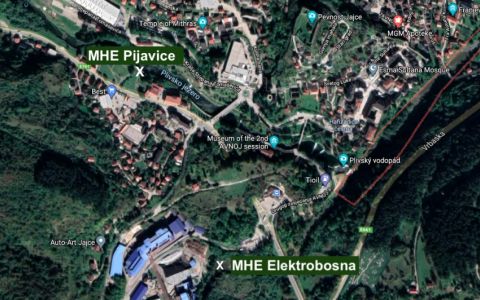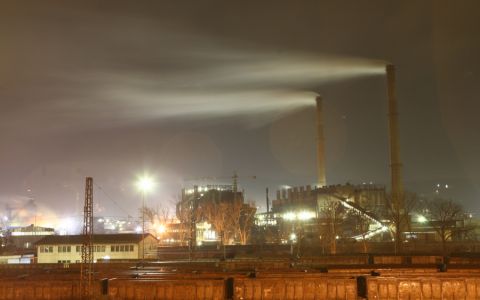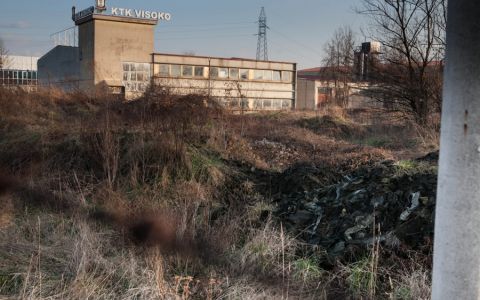Deep canyons, rocky cliffs, mountain rivers and streams, impassable forests ... Bosnia and Herzegovina has real gems of nature, that tourists have not yet discovered. Here you can find some of the richest ecosystems of Europe, with a favorable environment for many rare animal and plant species. Authorities however, see a very different purpose for the untouched nature. Since 2002, they have released more than a hundred concessions for the construction of hydropower plants in the canyons of the fast rivers in the Republika Srpska. The situation is not any better in the Federation of Bosnia and Herzegovina. More than twenty civil society organizations and a large number of local communities rebels and opposes the projects that would forever destroy the unique point of biodiversity.
Sana, Sutjeska, Bistrica and Trebišnjica. Four rivers each rated as a "first class river" by water classification and categorization of water courses of Republika Srpska. On all four of the rivers there are hydropower plant planned or are already being built. According to civil society, the problem is the lack of transparent rules where these facilities can be built, and where the priority should strictly be the nature protection. Hydroelectric power plants are obviously changing water levels, can cause flooding of certain areas, and draining of other. Thus, it greatly undermines local ecosystems.
Nature needs our protection
Number of planned hydropower plants reveals weak points of the system of nature protection. Some projects are located in protected areas, even in the area of the National park. That is why since 2009, "Coalition for Sana" began to campaign in two directions: to stop further construction of hydropower plants and to ensure effective protection of valuable natural areas. One of the first challenges was the project of construction of hydro power plants 'Medna' on the Sana River. The coalition filed a complaint against already issued environmental and construction permits and environmental impact assessment (EIA), and has asked the Ministry of Industry, Energy and Mining to cancel the concession contract. However, construction work began in 2010, despite the disagreement of the local population, affected municipalities of Ribnik and Mrkonjic Grad, and even negative expert opinion of the Institute for Protection of Cultural and Natural Heritage of the Republika Srpska.
Hydroelectric power plants in court
Citizens have not given up. The Coalition filed a lawsuit against the State - and succeeded! The District Court in Banja Luka has twice cancelled the decision on the approval of environmental impact assessment that contained false information, and issued permits are canceled. Investor - LSB Power plants - responded concisely. Without the necessary environmental and construction permits, the company started to build an access road and clear the forest along the river. The coalition has launched a petition against the construction of which was signed by 3,000 people. In November 2010, a demonstration was organized to draw attention to the violation of the law (Law on Environmental Protection, Law on Physical Planning and Construction, Law on Concessions and other) and the inaction of the competent authorities.
In 2013, LSB Power plants has transferred the ownership of the project from a Slovenian company "Interenergo" to the Austrian Kelag International. From September 2014 a hydropower plant Medna is built, although the Ribnik municipal assembly twice unanimously voted against the project, and the local population is already suffering from the negative consequences of the construction of hydroelectric power plants.
Coalition for Sana led over 10 lawsuits against the relevant ministries, but the government directly and obviously provided support to the project. This was a traning of strengthening of conscience and resistance minds. Neither the locals nor the Coalition for Sana does plan to abandon the intention to preserve Sana as a wild river. "This nature richness is our common heritage and as long as hydropower is not put into operation, we will lead the battle to preserve it", says the Coalition for Sana.
Following the arguments presented by the Coalition over seven years, that were used and emphasized many times, in 2016 also financial unprofitability of this harmful project was presented. On the occasion of World Water Day, which recalls the importance of water and the lack of drinking water in many parts of the world, the Coalition for Sana presented "a feasibility study for the construction of small hydro power plants the company" Medna "on the sources of the river Sana" created by the economic expert and showing you exactly what was said for years - hydropower Inter brings only benefits to individuals. The operation of Medna hydroelectric plant will have a negative financial impact on the budget of the municipality and the Republika Srpska in the amount of 1,055,988 KM.
Civil society had the advantage of synergies, combining common efforts and established a coalition. This way, citizens got more power to challenge private companies. The participation in all decision-making processes and determination to defend the rights even in court were the key for partial success. This showed that the investor broke the law and did not fulfill its obligations, but without the active participation of civil society, governments would silently ignore this.
________________________________________
"Bosnia and Herzegovina faces significant risk of flooding. We have seen it recently: massive floods and landslides in 2014 caused enormous damage. With the increased water level, concrete construction on rivers may exacerbate problems. In addition, we do not need new energy sources. Bosnia does not lack energy; our country is a large exporter. For the future, preserving the unique nature and boosting tourism, energy efficiency and renewable sources will strengthen our position in Europe, much more than constructing concrete dams and power stations in the mountain canyons,"
Nataša Crnković, Center for Environment Banja Luka







